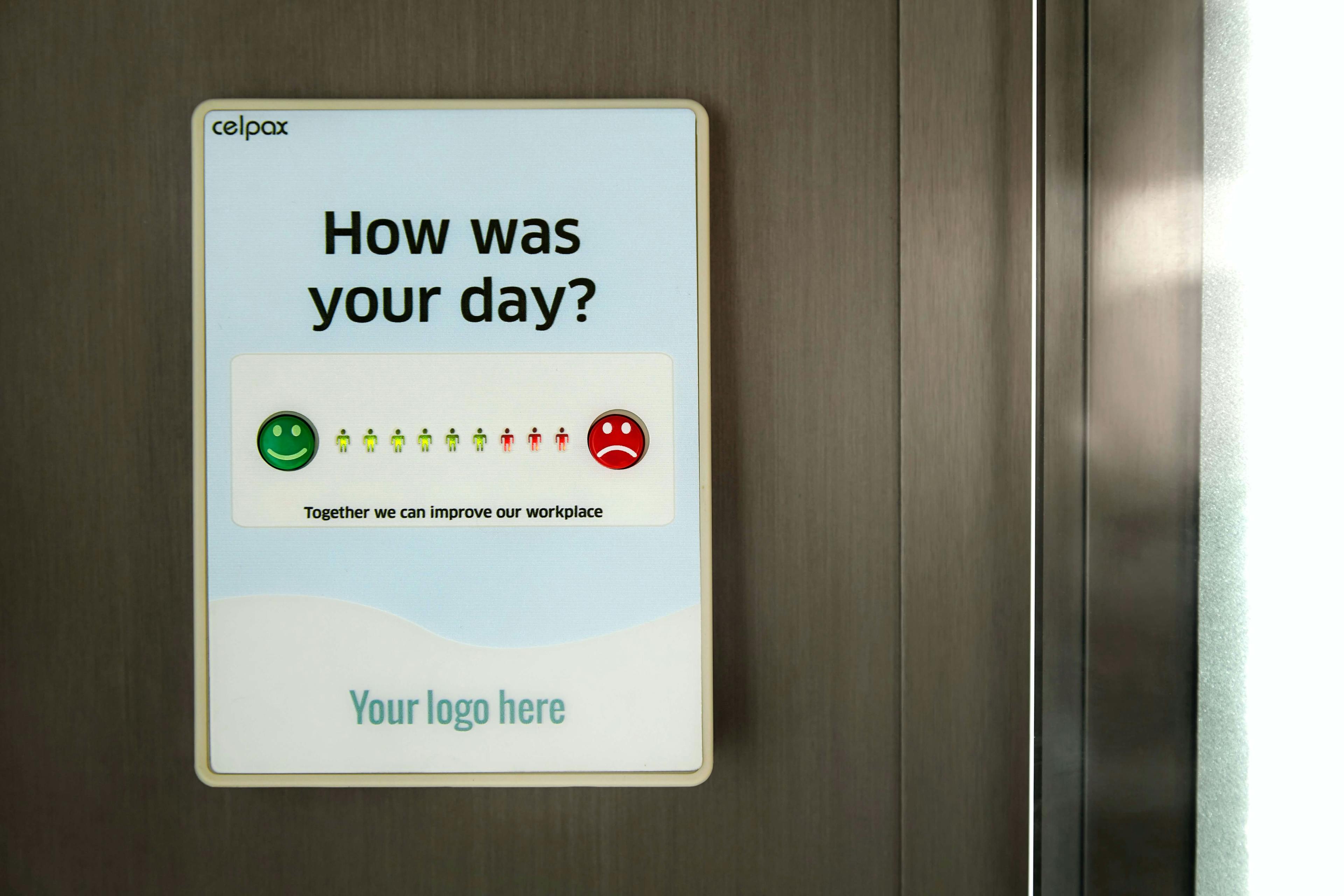In today’s fast-paced and competitive business environment, effective, management style is more crucial than ever. Good manager qualities possess a unique set of characteristics that enable them to lead their teams to success, foster collaboration, and create a positive work environment. Dive into the world of good management and discover the essential traits that set apart the very best managers from the rest.
Key Takeaways
Good managers use effective communication, active listening and open dialogue to motivate their team.
Leadership qualities such as vision & strategy, empowerment & motivation, adaptability & flexibility are essential for successful management.
Building trust through demonstrating trustworthiness and valuing diversity is key to foster collaboration and create a productive work environment.
Effective Communication
For good managers, communication is the lifeblood that connects their team with the organization’s goals and objectives. Effective communication involves clarity and conciseness, active listening, and encouraging open dialogue to ensure a well-informed and engaged team.
These communication skills significantly contribute to a manager’s success. We’ll now explore the three main facets of effective and successful manager and communication.
Clarity and Conciseness
Among the most successful managers, a common trait is understanding the importance of getting their message across clearly and concisely to avoid confusion workplace conflict, and misinterpretation. Clarity in communication leads to efficient collaboration, better decision-making, and improved problem-solving.
Mastering clarity and conciseness in communication helps managers align the team with the company’s mission and values.
Active Listening
It’s not enough for bad manager to just convey information effectively; good managers must also be active listeners. By scheduling regular one-on-ones with team members and asking for feedback, managers can gain valuable insights into their team’s needs, concerns, and ideas.
Active listening not only helps managers make informed decisions but also fosters trust and a positive working environment, leading to employee retention, higher levels of productivity and job satisfaction.
Encouraging Open Dialogue
Fostering open dialogue is another critical element of effective communication. Good managers create a transparent and inclusive atmosphere, where employees feel comfortable expressing their ideas and concerns without fear of criticism or dismissal.
An open-door policy and real-time employee feedback that can greatly benefit managers and their teams by:
Ensuring that everyone’s voice is heard and valued
Building trust and fostering collaboration
Leading to a more productive and harmonious work environment.
Leadership Qualities
Good managers possess several leadership qualities that set them apart from their less effective counterparts. Vision and strategy, empowerment and motivation, listening skills and adaptability and flexibility are vital for successful managers. A great manager not only inspires and guides the team but also ensures that everyone remains engaged and focused on achieving the company’s goals.
We’ll now delve into these distinct leadership qualities, which are essential for developing effective leadership skills.
Vision and Strategy
A clear vision and strategy are essential for guiding a team towards its objectives and inspiring employees to work towards them. Good managers are adept at translating the organization’s vision and strategy into actionable goals for their team, ensuring that everyone is working together to achieve success.
Creating a sense of purpose and direction for employees becomes possible when managers align team goals with organizational objectives.
Empowerment and Motivation
Empowering and motivating employees is essential for creating a high-performing and engaged team. Managers can foster empowerment by delegating tasks, offering training and development opportunities, and providing autonomy and flexibility. In this way, managing employees effectively leads to a more productive and satisfied workforce.
Motivating employees can be achieved through recognition, clear goal-setting, and fostering a positive work environment. Ensuring everyone performs at their best and thus increases productivity and success becomes possible when managers empower and motivate their team.
Adaptability and Flexibility
In today’s ever-changing business landscape, adaptability and flexibility are crucial for managers to navigate change and challenges effectively. By embracing new ideas hard skills and approaches, and adjusting to changing circumstances, managers can ensure that their team remains resilient and focused on achieving their goals.
This adaptability allows managers to tackle unexpected obstacles and seize new opportunities, driving success for their team and the organization as a whole.
Emotional Intelligence
Emotional intelligence is often overlooked but is crucial for good managers. It includes empathy and understanding, self-awareness and regulation, and relationship management. By developing these skills, managers can build trust, foster collaboration, and create a supportive work environment that promotes employee engagement and satisfaction.
We’ll now discuss the significance of emotional intelligence in effective management and how it can help measure managerial effectiveness.
Empathy and Understanding
Empathy and understanding are essential for managers to connect with their employees and identify their struggles. By understanding the challenges their team members face, managers can offer support and guidance, ultimately leading to better job performance and teamwork.
A genuine sense of empathy fosters strong connections and a positive work environment, where employees feel valued and respected.
Self-Awareness and Regulation
Self-awareness and regulation enable managers to manage their emotions and reactions, setting a positive example for their team. By understanding their employees aligned own emotions and triggers, managers can better handle difficult situations and maintain a level-headed approach, even under pressure.
This self-awareness and emotional regulation foster a more positive and productive work environment, allowing individual team members to thrive and succeed.
Relationship Management
Relationship management is essential for building strong connections with the team and fostering a supportive, collaborative environment. Managers can achieve this by actively listening to their team members, encouraging open dialogue, accepting responsibility and demonstrating empathy and understanding.
Cultivating strong relationships forms a foundation of trust and collaboration, enabling the team to work effectively towards a common goal.
Technical Skills and Industry Knowledge
While often seen as secondary to soft skills, technical skills and industry knowledge are important for effective managers. Staying current with industry trends, honing problem-solving skills, and embracing continuous learning are essential for managers to excel in their roles.
We’ll now discuss how essential technical skills and industry knowledge are in effective management.
Staying Current
Staying current with industry trends and developments allows managers to:
Make informed decisions
Set an example for their team
Ensure that their team is equipped with the knowledge and skills needed to succeed and stay ahead of the competition.
Problem-Solving
Problem-solving skills are invaluable for managers to address challenges and find solutions, ensuring the team remains productive and efficient.
Guiding the team through challenging moments and keeping everyone focused on their goals is achievable when managers tackle complex problems and devise creative solutions.
Continuous Learning
Continuous learning is essential for managers to stay up-to-date with new skills and knowledge, promoting a culture of growth and development within the team. By embracing continuous learning and encouraging their team to do the same, managers can ensure that everyone is equipped with all the qualities, skills and knowledge needed to excel in their roles and contribute to the organization’s success.
Managers should strive to create an environment that encourages learning and development, and provide their team
Conflict Resolution and Decision-Making
Conflict resolution and their decision making skills in-making are essential qualities for good managers, as they enable them to:
Maintain a harmonious work environment
Make informed choices that guide their team effectively
Identify and address conflicts
Make decisive decisions
Take responsibility
All of these factors play a critical role in effective management.
We’ll now examine these skills more closely.
Identifying and Addressing Conflicts
Recognizing and resolving conflicts is crucial for managers to ensure that projects stay on track and morale remains high. By addressing conflicts promptly and effectively, managers can prevent issues from escalating and maintain a positive work environment where employees feel supported and valued.
Decisive Decision-Making
Decisive decision-making is essential for managers to make informed choices and guide their team effectively. By carefully evaluating potential consequences and weighing the pros and cons, managers can ensure that their decisions are well-informed and lead to successful outcomes for their team and organization.
Taking Responsibility
Taking responsibility for decisions and actions is crucial for managers to demonstrate accountability and lead by a good example themselves. By owning up to their choices and setting a positive example for their team, managers can foster a culture of responsibility and accountability, ultimately leading to a more successful and productive work environment.
Employee Recognition and Support
Employee recognition and support are vital for effective managers, as they can inspire employees, create a feeling of accomplishment, and promote employee growth and development. By acknowledging achievements, providing positive feedback, and guidance, and prioritizing employee wellbeing, managers can demonstrate their dedication to their team’s success and satisfaction.
We will now discuss the aspects of employee recognition and support, whether you have five or fifty employees in your organization.
What is 360-degree feedback and how to use it in your organization
360-degree feedback, often referred to as multi-rater and feedback system, is a method of evaluating an employee's performance that transcends traditional, one-sided performance reviews. Learn how to use it in your own organisation.Acknowledging Achievements
Recognizing and celebrating employees’ accomplishments is essential for fostering a sense of achievement and motivating employees to continue performing at their best. By offering verbal praise, rewards, or incentives, and recognizing employees publicly, managers can help employees feel valued and appreciated for their hard work and dedication.
Providing Feedback and Guidance
Providing feedback and guidance is crucial for managers to support employee growth and development. By setting clear expectations, offering timely and constructive feedback, and supplying resources and support, managers can help their team members reach their full potential and contribute to the organization’s success.
Prioritizing Employee Wellbeing
Prioritizing employee wellbeing demonstrates a manager’s commitment to their team’s success and happiness, leading to increased loyalty and productivity.
Managers who foster a healthy work-life balance, provide mental health support, and create a positive work environment make their employees feel valued and appreciated in their roles.
Building Trust and Fostering Teamwork
Building trustworthiness good managers, and fostering teamwork are essential qualities for good managers, as they promote a supportive and collaborative work environment where employees can thrive. By demonstrating trustworthiness, encouraging collaboration, and valuing diversity and inclusion, managers can create strong connections within their team and ensure that everyone works together effectively.
We’ll now delve into these qualities of a good more closely.
Demonstrating Trustworthiness
Trustworthiness is key for building strong relationships and promoting a supportive, honest work environment. By being honest, transparent, and accountable, managers can foster trust among their employees, creating a culture where everyone feels comfortable sharing their ideas and concerns.
Encouraging Collaboration
Encouraging collaboration is essential for fostering teamwork and ensuring that all employees feel recognized to work together effectively to achieve common goals. By promoting open communication, sharing resources, and discouraging unhealthy competition, managers can create a positive environment where employees feel valued and supported in their efforts to contribute to the organization’s success.
Valuing Diversity and Inclusion
Valuing diversity and inclusion is crucial for creating a welcoming and inclusive atmosphere, allowing employees to feel valued and respected for their unique contributions. By treating everyone fairly and fostering a culture of acceptance and understanding, managers can ensure that their team is equipped to face challenges and seize opportunities together, leading to greater success and satisfaction for all involved.
For any organization valuing diversity and inclusion, establishing a company culture of acceptance and understanding is crucial.
How Wellbee Can Assist You in Enhancing Your Managerial Skills
Wellbee is your automated HR assistant which helps managers to collect and act on employee feedback. All you need is to connect to our dashboard and select the areas you want to collect feedback on. You can use already pre-defined templates or create.

Current templates and survey examples that you can use on Wellbee
360-degree Feedback Survey
Express Feedback Survey
Remote Teams Survey
eNPS Survey
Stay Interview Survey
1-on-1 Preparation Survey
And more

Summary
In conclusion, good managers possess a unique set of qualities that enable them to lead their teams to success, foster collaboration, and create a positive work environment. By mastering effective communication, embracing leadership qualities, developing emotional intelligence, honing technical skills and industry knowledge, excelling in conflict resolution and decision-making, prioritizing employee recognition and support, and building trust and fostering teamwork, great managers can set themselves apart and achieve outstanding results for their team and organization. Embrace these essential traits and become the exceptional manager your team deserves!
Frequently Asked Questions
What are the characteristics of a good manager?
A good manager has strong leadership skills, professional experience, excellent communication and organizational abilities, knowledge, time management and interpersonal skills,, the ability to delegate tasks, and a confident attitude.
What are the 7 capabilities of a good manager?
Good managers possess the 7 key skills of effective communication, time management and prioritization, relationship management role, building, coaching and delegation, problem solving, constructive feedback, and being solution oriented. This combination of skills will enable them to lead successful teams.
How can active listening improve a manager's effectiveness?
Active listening helps managers build trust with their teams, understand their own team member's needs, and create an environment of open communication, which makes them more effective.
Why is emotional intelligence important for managers?
Emotional intelligence is essential for managers, as it helps them build trusting relationships and foster collaboration with their team by enabling them to recognize, understand, and manage emotions.
How can prioritizing employee wellbeing lead to increased loyalty and productivity?
By demonstrating their commitment to team success and creating a positive work environment, managers who prioritize employee wellbeing can foster loyalty and higher levels of productivity.


